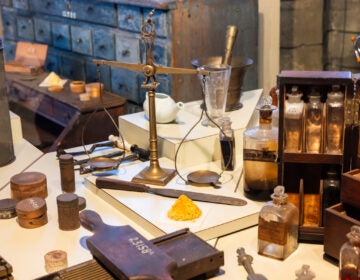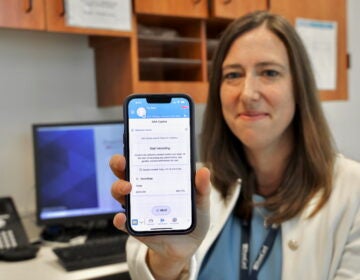Many guidelines for heart care rely on weak evidence

Few medical guidelines for heart care are based on the highest-quality evidence. (Peerawat Kamklay/Getty Images)
Doctors turn to professional guidelines to help them identify the latest thinking on appropriate medical treatments, but a study out Friday finds that in the realm of heart disease, most of those guidelines aren’t based on the highest level of evidence.
A paper in JAMA, the journal of the American Medical Association, that was released online ahead of print, finds that less than 10 percent of cardiovascular guidelines are based on the most carefully conducted scientific studies, known as randomized controlled trials. A lot of the rest are based on much weaker evidence.
Renato Lopes, a cardiologist at Duke University and his colleagues decided to dig into the guidelines from the American College of Cardiology and the American Heart Association. The scientists also reviewed the European Society of Cardiology guidelines, and found a similar pattern.
Colleagues who had done a similar analysis a decade ago came up with a surprising and disappointing observation: Only 12.5 percent of these guidelines are based on the highest level of evidence.
That study “created a lot of buzz, as you can imagine, because the numbers were not what everybody was expecting,” Lopes says. The community of heart-disease researchers resolved to address those important knowledge gaps.
Ten years later, Lopes and his colleagues decided to see if there had been any progress. If anything, the situation has gotten slightly worse.
The new study concludes that only 8.5 percent of the guidelines are backed up by randomized controlled trials, in which people getting a treatment are compared with a similar group that isn’t.
Lopes isn’t exactly sure why the situation hasn’t improved, but he has a few ideas. One is that some of the studies launched a decade ago to get better answers are still underway.
Another possibility is more complicated. “At the same time that you answer one question [with a carefully constructed study] you might be generating more questions,” he says. “And you don’t have those answers for those additional questions.” So you end up generating more uncertainty in other areas.
It’s like the Red Queen in Alice in Wonderland, who needs to run in place simply to stay where she is.
Doctors, of course, can’t simply wait for the highest level of evidence. “If you’re in front of a patient, you need to do something,” he says. “You cannot say, ‘Hey we don’t know what to do.’ ” So patients get treated based on the best available advice, even if it is far from optimal.
Take, for example, a patient with a heart-valve problem. Cardiologists may choose one of a number of medicines to treat the condition, but it’s not clear how effective any option is.
Lopes says nobody has resolved whether the blood thinner warfarin is actually the best treatment for people on dialysis. It is the only approved drug for that condition, and it has been prescribed for many years, but Lopes says it’s an open question – one that deserves to be studied – whether the drug is helpful, or if there’s an alternative that would be better.
An accompanying editorial in JAMA notes that some recommendations are so obvious that it wouldn’t be ethical to withhold a practice as part of a carefully constructed study. Dr. Robert Bonow at Northwestern University and Dr. Eugene Brunwald at Harvard-affiliated Brigham and Women’s Hospital, note it’s unlikely anyone would ever run a study to see whether it is truly beneficial to take a medical history and perform an exam in a patient with symptoms of heart failure.
“Although guidelines are imperfect and a work in progress,” they write, “they remain the cornerstone for informing clinical decisions.”
This problem is by no means unique to heart disease. Many medical decisions are based on weak evidence or even human hunches rather than high-quality evidence, and “reversals” of opinion are common. Oncologist Vinay Prasad at Oregon Health and Science University has studied that phenomenon.
Lopes says these shortcomings can be reduced with more solid scientific information. He would like his colleagues consider running studies that could answer several outstanding questions simultaneously.
It’s no easy task to change the way medical questions are studied. But, he says, “I think we are seeing more and more initiatives in the right direction.”
You can reach NPR Science Correspondent Richard Harris at rharris@npr.org.
9(MDAzMzI1ODY3MDEyMzkzOTE3NjIxNDg3MQ001))




